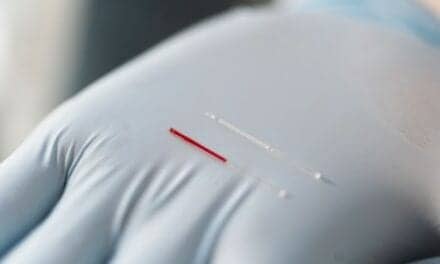Chemists from the Ludwig Maximilian University of Munich (LMU) are developing a solution that could help to significantly improve PCR-based diagnostic tests, where enzymes being used are triggered by light pulses instead of hot-start methods.
The impetus behind this new approach was to alleviate diagnostic challenges that are inherently part of PCR tests.
DNA polymerases and other enzymes that modify DNA are key components for PCR-based COVID-19 diagnostics. However, DNA processing enzymes often have important flaws that can subsequently lead to loss of specificity and sensitivity, which has to be avoided in a diagnostic test. This is particularly with hot-start approaches, which cannot be used for enzymes that are damaged by heat.
“Besides, the design of a hot-start enzyme is tedious and the exhausting design process has to be repeated for each new enzyme that we want to engineer,” says LMU-biochemist Andrés Vera, PhD.
Together with Merve-Zeynep Kesici from the group of professor Philip Tinnefeld, PhD, at the Department of Chemistry of LMU, Andrés found a way around these problems designing light-start enzymes. Their light-start enzymes are blocked until a pulse of UV light reactivates them.
“Light-controlled enzymes have been around for quite a while, but what makes our approach unique is that it can be applied to virtually any DNA processing enzyme. In the past you always needed very detailed information on how your enzyme works and you were never sure that you would come with a smart way to block the enzyme and reactivate it with light,” says Vera, who leads the project.
In their approach, the researchers bound a piece of DNA to the enzyme itself, which over-compete any other enzymatic substrates rendering the enzyme effectively inactive. The light pulse is used to cut the DNA attached to the enzyme resulting in a 100 percent active enzyme. The main advantage is that the mechanism should work for a broad range of DNA biding enzymes regardless of their specific way of action.
To prove their point, the researchers produced four light-activatable versions of different DNA processing enzymes. Among them was the so called Phi29 DNA polymerase, an enzyme broadly used to amplify whole genomes but too heat-sensitive to be adapted to hot-start methods.
“This is definitely going to help to produce better enzymes for biotechnological and diagnostics use. Besides, current real-time PCR machines already incorporate light sources and they could be easily modified to bring these enzymes to the market anytime soon,” says Tinnefeld.
Read the full study here.
Featured image: A new approach by LMU biochemists could help to significantly improve diagnostic tests based on PCR. The enzymes used are triggered by light pulses. Photo: Vera / LMU





